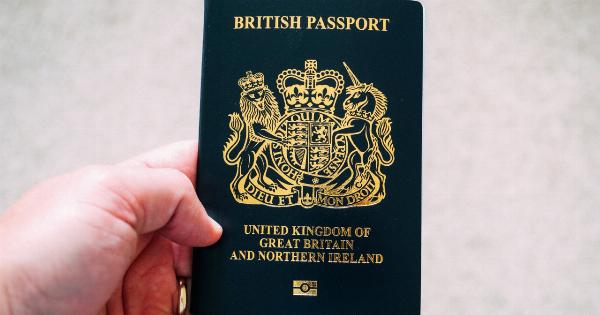As the world continues to navigate the challenges presented by the COVID-19 pandemic, South Africa has found itself at the epicenter once again with the emergence of the Omicron variant.
However, experts are cautiously optimistic as they predict the eventual end of Omicron in South Africa. In this article, we will explore the reasons behind their predictions and the actions being taken to curb the spread of the variant.
The Omicron Variant: A New Challenge
Omicron was first identified in South Africa in November 2021 and quickly caught the attention of global health authorities due to its numerous mutations and potential increased transmissibility.
The variant has since spread to several countries, causing concerns and travel restrictions.
South Africa, being the initial epicenter of the variant, faced its fair share of challenges. Initially, the surge in cases overwhelmed the healthcare system and put a strain on resources.
However, the country quickly ramped up efforts to control the spread, implement strict protocols, and conduct widespread testing.
Effective Vaccine Coverage
One key aspect that experts believe will contribute to the end of Omicron in South Africa is the country’s relatively high vaccination rates.
Although breakthrough infections have been reported, vaccinated individuals are more likely to have milder symptoms and lower hospitalization rates.
South Africa has made remarkable progress in its vaccination campaign, with significant numbers of the population receiving their COVID-19 jabs.
The government’s efforts to prioritize vaccination and promote vaccine confidence have played a crucial role in mitigating the impact of the variant.
Enhanced Testing and Contact Tracing
To control the transmission of Omicron, South Africa has significantly increased its testing and contact tracing efforts.
By identifying positive cases and tracing their contacts, authorities can swiftly implement quarantine measures, isolate infected individuals, and minimize the potential for widespread transmission.
Experts believe that the combination of widespread testing, rapid identification of positive cases, and contact tracing will contribute to the eventual containment and end of Omicron in South Africa.
Travel Restrictions and Control Measures
Since the detection of the Omicron variant, several countries have imposed travel restrictions on South Africa and other affected regions.
While these measures aim to prevent the spread of the variant, they have also inadvertently contained its geographic reach.
Travel restrictions, combined with stringent control measures within South Africa, have limited the exportation of the Omicron variant to other nations.
As a result, experts believe that the containment measures, both within the country and globally, will ultimately contribute to the end of Omicron in South Africa.
Public Health Measures and Behavioral Changes
Throughout the course of the pandemic, public health measures such as mask-wearing, social distancing, and hand hygiene have proven to be effective in reducing transmission.
South Africa has reinforced the importance of these measures and implemented strict protocols to curb the spread of the Omicron variant.
In addition to government-imposed measures, individuals have also embraced behavioral changes to protect themselves and others.
The collective effort of the South African population, combined with the adherence to public health guidelines, is expected to play a vital role in bringing an end to Omicron in the country.
Collaboration with International Partners
The fight against the Omicron variant is not exclusive to South Africa. The country has actively collaborated with international partners, sharing data, research, and experiences to collectively combat the variant.
Through collaboration and knowledge-sharing, experts from around the world have gained valuable insights into the behavior and impact of the Omicron variant.
This collective expertise will aid in devising effective strategies and approaches to eventually end the Omicron wave in South Africa.
Remain Vigilant and Adaptive
While experts predict the eventual end of Omicron in South Africa, it is crucial to remain vigilant and adapt to the evolving situation.
The emergence of new variants and the unpredictable nature of the virus remind us of the need for continuous monitoring, research, and preparedness.
As the global scientific community works tirelessly to understand and respond to the Omicron variant, it is essential for individuals, communities, and governments to stay informed, follow guidelines, and remain adaptable in their approach.
Conclusion
Experts predict the end of Omicron in South Africa, thanks to the country’s effective vaccine coverage, enhanced testing and contact tracing efforts, travel restrictions, public health measures, collaboration with international partners, and a vigilant and adaptive approach. While the road ahead may still have its challenges, the collective efforts of individuals, communities, and governments worldwide will help bring an end to the Omicron wave and pave the way for a safer future.




























